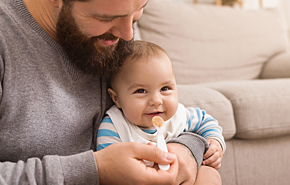| Geschrieben von Daffy am 12.06.2023, 19:59 Uhr |
Sehe ich ganz anders.
> Wie wahrscheinlich ist es denn, dass der Stiefvater seine Stiefkinder misshandelt? Da hätte ich jetzt doch mal eine Quelle.
Misshandlung und Missbrauch sind die Ausnahme, nicht die Regel, auch bei Stiefkindern. Aber die Wahrscheinlichkeit für beides steigt statistisch auf ein Vielfaches, wenn die Mutter eine neue Beziehung eingeht.
https://www.ojp.gov/ncjrs/virtual-library/abstracts/prevalence-and-seriousness-incestuous-abuse-stepfathers-vs
https://en.wikipedia.org/wiki/Cinderella_effect
" "In 1973, forensic psychiatrist P. D. Scott summarized information on a sample of "fatal battered-baby cases" perpetrated in anger ... 15 of the 29 killers – 52% – were stepfathers."[1] Although initially there was no analysis of this raw data, empirical evidence has since been collected on what is now called the Cinderella effect through official records, reports, and census.
For over 30 years, data has been collected regarding the validity of the Cinderella effect, with a wealth of evidence indicating a direct relationship between step-relationships and abuse. This evidence of child abuse and homicide comes from a variety of sources including official reports of child abuse, clinical data, victim reports, and official homicide data.[2] Studies have concluded that "stepchildren in Canada, Great Britain, and the United States indeed incur greatly elevated risk of child maltreatment of various sorts, especially lethal beatings"
...
In addition to displaying higher rates of negative behaviors (e.g., abuse) toward stepchildren, stepparents display fewer positive behaviors toward stepchildren than do the genetic parents. For example, on average, stepparents invest less in education, play with stepchildren less, take stepchildren to the doctor less, etc
...
Children are not only vulnerable to abuse by their parents, but they are also dependent on their parents for supervision and protection from a variety of other harms.
...
Based on data gathered from the Australia National Coroners' Information System, stepchildren under five years of age are two to fifteen times more likely to experience an unintentional fatal injury, especially drowning, than genetic children. "
Interessant ist die evolutionspsychologische Deutung ![]() :
:
"Unlike the lion, however, humans in a stepparenting situation face a more complicated tradeoff since they cannot completely disown their partner's offspring from a previous relationship, as they would risk losing sexual access to their partner and any chance of producing potential offspring.... This mating effort hypothesis suggests that humans will tend to invest more in their genetic offspring and invest just enough in their stepchildren."
- Plan International Studie - Tonic2108 11.06.23, 20:19
- Re: Plan International Studie - u_hoernchen 11.06.23, 20:57
- Re: Plan International Studie - Tonic2108 11.06.23, 21:10
- Re: Plan International Studie - Managerin 11.06.23, 21:25
- Re: Plan International Studie - Tonic2108 11.06.23, 21:10
- Re: Plan International Studie - Managerin 11.06.23, 21:08
- Re: Plan International Studie - Tonic2108 11.06.23, 21:16
- Re: Plan International Studie - Miamo
 11.06.23, 21:08
11.06.23, 21:08- Re: Plan International Studie - Tonic2108 11.06.23, 21:17
- Re: Plan International Studie - kevome* 11.06.23, 21:19
- Re: Plan International Studie - kevome* 11.06.23, 21:22
- Re: Plan International Studie - Managerin 11.06.23, 21:27
- Re: Plan International Studie - Pamo 11.06.23, 21:41
- Re: Plan International Studie - kevome* 11.06.23, 21:22
- Re: Plan International Studie - Pamo 11.06.23, 21:40
- Re: Plan International Studie - Ichx4 12.06.23, 7:14
- Re: Plan International Studie - Miamo
 12.06.23, 7:56
12.06.23, 7:56- Re: Plan International Studie - Ichx4 12.06.23, 8:27
- Re: Plan International Studie - Miamo
 12.06.23, 8:55
12.06.23, 8:55
- Re: Plan International Studie - Miamo
- Re: Plan International Studie - Ichx4 12.06.23, 8:27
- Re: Plan International Studie - Miamo
- Wir sind auch so ein "klassisches Modell"... - Leena
 12.06.23, 13:48
12.06.23, 13:48- Re: Wir sind auch so ein "klassisches Modell"... - Everdin 12.06.23, 14:15
- Re: Wir sind auch so ein "klassisches Modell"... - Zwergenalarm 12.06.23, 15:56
- Re: Plan International Studie - Ichx4 12.06.23, 7:14
- Re: Plan International Studie - Ruto 11.06.23, 22:01
- Re: Plan International Studie - DK-Ursel 11.06.23, 22:14
- Ruto - Julefabi2010 13.06.23, 10:06
- Re: Plan International Studie - Annaleena 11.06.23, 22:25
- Re: Plan International Studie - Shanalou 12.06.23, 0:15
- Re: Plan International Studie - Tonic2108 12.06.23, 7:53
- Re: Plan International Studie - Btby 12.06.23, 6:18
- Re: Plan International Studie - Ichx4 12.06.23, 7:09
- Re: Plan International Studie - Zwergenalarm 12.06.23, 7:41
- Re: Plan International Studie - Miamo
 12.06.23, 8:50
12.06.23, 8:50 - Re: Plan International Studie - Delphine 12.06.23, 9:05
- Re: Plan International Studie - Delphine 12.06.23, 9:05
- Re: Plan International Studie - Shanalou 12.06.23, 9:06
- Re: Plan International Studie - memory 12.06.23, 9:36
- Re: Plan International Studie - memory 12.06.23, 9:40
- Re: Plan International Studie - Zwergenalarm 12.06.23, 9:58
- Re: Plan International Studie - memory 12.06.23, 10:13
- Re: Plan International Studie - Zwergenalarm 12.06.23, 10:28
- Re: Plan International Studie - memory 12.06.23, 10:40
- Re: Plan International Studie - Ichx4 12.06.23, 10:45
- Re: Plan International Studie - Zwergenalarm 12.06.23, 10:47
- Re: Plan International Studie - memory 12.06.23, 10:50
- Spontan würde ich sagen - lieber den Pfleger... - Petra28 12.06.23, 13:31
- Re: Plan International Studie - Zwergenalarm 12.06.23, 10:55
- Re: Plan International Studie - memory 12.06.23, 11:05
- Re: Plan International Studie - Zwergenalarm 12.06.23, 11:24
- Re: Plan International Studie - Shanalou 12.06.23, 11:51
- Re: Plan International Studie - Zwergenalarm 12.06.23, 12:03
- Re: Plan International Studie - Shanalou 12.06.23, 13:47
- Und hey, es gibt auch andere Trennungsgründe…. - Zwergenalarm 12.06.23, 12:08
- Re: Und hey, es gibt auch andere Trennungsgründe…. - Shanalou 12.06.23, 13:57
- Re: Und hey, es gibt auch andere Trennungsgründe…. - Zwergenalarm 12.06.23, 15:53
- Re: Und hey, es gibt auch andere Trennungsgründe…. - Shanalou 12.06.23, 18:37
- Re: Und hey, es gibt auch andere Trennungsgründe…. - Zwergenalarm 12.06.23, 15:53
- Re: Und hey, es gibt auch andere Trennungsgründe…. - Shanalou 12.06.23, 13:57
- Re: Plan International Studie - Zwergenalarm 12.06.23, 12:03
- Re: Plan International Studie - Daffy 12.06.23, 13:10
- Sehe ich ganz anders. - Petra28 12.06.23, 13:26
- Und Frauen haben mittlerweile auch mehr Zeit. - Petra28 12.06.23, 13:36
- Re: Und Frauen haben mittlerweile auch mehr Zeit. - mauspm 12.06.23, 13:57
- Re: Und Frauen haben mittlerweile auch mehr Zeit. - Petra28 12.06.23, 16:24
- Re: Und Frauen haben mittlerweile auch mehr Zeit. - mauspm 12.06.23, 13:57
- Re: Sehe ich ganz anders. - Daffy 12.06.23, 17:35
- Re: Sehe ich ganz anders. - Petra28 12.06.23, 19:06
- Re: Sehe ich ganz anders. - Daffy 12.06.23, 19:59
- Re: Sehe ich ganz anders. - Petra28 12.06.23, 19:06
- Und Frauen haben mittlerweile auch mehr Zeit. - Petra28 12.06.23, 13:36
- Sehe ich ganz anders. - Petra28 12.06.23, 13:26
- Re: Plan International Studie - Shanalou 12.06.23, 11:51
- Re: Plan International Studie - Zwergenalarm 12.06.23, 11:24
- Re: Plan International Studie - memory 12.06.23, 11:05
- Re: Plan International Studie - Ichx4 12.06.23, 10:45
- Re: Plan International Studie - memory 12.06.23, 10:40
- Re: Plan International Studie - Zwergenalarm 12.06.23, 10:28
- Re: Plan International Studie - memory 12.06.23, 10:13
- Re: Plan International Studie - memory 12.06.23, 9:36
- Re: Plan International Studie - Miamo
- Ja, es wäre wunderbar beruhigend, wenn … - Mijou 12.06.23, 8:41
- Re: Plan International Studie - Blueberry 12.06.23, 9:01
- Re: Plan International Studie - Zwergenalarm 12.06.23, 10:00
- Re: Plan International Studie - Ichx4 12.06.23, 10:09
- Re: Plan International Studie - Zwergenalarm 12.06.23, 10:20
- Re: Plan International Studie - Ichx4 12.06.23, 10:27
- Re: Plan International Studie - Zwergenalarm 12.06.23, 10:37
- Re: Plan International Studie - Ichx4 12.06.23, 10:42
- Re: Plan International Studie - Zwergenalarm 12.06.23, 11:18
- Nachtrag - Zwergenalarm 12.06.23, 11:30
- Re: Plan International Studie - Zwergenalarm 12.06.23, 11:18
- Re: Plan International Studie - Ichx4 12.06.23, 10:42
- Re: Plan International Studie - Zwergenalarm 12.06.23, 10:37
- Re: Plan International Studie - Annaleena 12.06.23, 13:56
- Re: Plan International Studie - Ichx4 12.06.23, 14:17
- Re: Plan International Studie - Ichx4 12.06.23, 10:27
- Re: Plan International Studie - Zwergenalarm 12.06.23, 10:20
- Re: Plan International Studie - Blueberry 12.06.23, 10:34
- Re: Plan International Studie - Zwergenalarm 12.06.23, 10:38
- Re: Plan International Studie - Blueberry 12.06.23, 10:54
- Re: Plan International Studie - Zwergenalarm 12.06.23, 11:38
- Re: Plan International Studie - Blueberry 12.06.23, 10:54
- Re: Plan International Studie - Miamo
 12.06.23, 11:04
12.06.23, 11:04- Re: Plan International Studie - Blueberry 12.06.23, 11:21
- Re: Plan International Studie - Miamo
 12.06.23, 11:26
12.06.23, 11:26
- Re: Plan International Studie - Miamo
- Re: Plan International Studie - mauspm 12.06.23, 11:44
- Re: Plan International Studie - Blueberry 12.06.23, 11:46
- Re: Plan International Studie - mauspm 12.06.23, 11:47
- Re: Plan International Studie - Blueberry 12.06.23, 12:15
- Re: Plan International Studie - mauspm 12.06.23, 12:18
- Re: Plan International Studie - Blueberry 12.06.23, 12:42
- Re: Plan International Studie - mauspm 12.06.23, 12:18
- Re: Plan International Studie - Blueberry 12.06.23, 12:15
- Re: Plan International Studie - mauspm 12.06.23, 11:47
- Re: Plan International Studie - Blueberry 12.06.23, 11:46
- Re: Plan International Studie - Blueberry 12.06.23, 11:21
- Re: Plan International Studie - Zwergenalarm 12.06.23, 10:38
- Re: Plan International Studie - Ichx4 12.06.23, 10:09
- Re: Plan International Studie - Zwergenalarm 12.06.23, 10:00
- Re: Plan International Studie - mauspm 12.06.23, 11:20
- Re: Plan International Studie - Ichx4 12.06.23, 11:24
- Re: Plan International Studie - mauspm 12.06.23, 11:34
- Re: Plan International Studie - mauspm 12.06.23, 11:38
- Re: Plan International Studie - Ichx4 12.06.23, 11:24
- 48% der jungen Männern fühlen sich von gezeigter Homosexualität gestört..?!? - Leena
 12.06.23, 13:36
12.06.23, 13:36- Re: 48% der jungen Männern fühlen sich von gezeigter Homosexualität gestört..?!? - Blueberry 12.06.23, 13:46
- Re: 48% der jungen Männern fühlen sich von gezeigter Homosexualität gestört..?!? - ak 12.06.23, 14:35
- Und wenn da der Mann sich eine Neue sucht? Dann werden die Damen in deinem Umfel - kleinefee69 12.06.23, 14:49
- Verwerflich am Lebensstil ist nichts. Nur das Heimchen am Herd jault am - kleinefee69 12.06.23, 15:11
- Re: Verwerflich am Lebensstil ist nichts. Nur das Heimchen am Herd jault am - DK-Ursel 12.06.23, 15:24
- Re: Verwerflich am Lebensstil ist nichts. Nur das Heimchen am Herd jault am - Zwergenalarm 12.06.23, 15:49
- Re: Verwerflich am Lebensstil ist nichts. Nur das Heimchen am Herd jault am - ak 12.06.23, 16:15
- Re: Verwerflich am Lebensstil ist nichts. Nur das Heimchen am Herd jault am - Zwergenalarm 12.06.23, 16:25
- Re: Verwerflich am Lebensstil ist nichts. Nur das Heimchen am Herd jault am - ak 12.06.23, 16:35
- Re: Verwerflich am Lebensstil ist nichts. Nur das Heimchen am Herd jault am - Zwergenalarm 12.06.23, 16:25
- Re: Verwerflich am Lebensstil ist nichts. Nur das Heimchen am Herd jault am - ak 12.06.23, 16:15
- Re: Verwerflich am Lebensstil ist nichts. Nur das Heimchen am Herd jault am - ak 12.06.23, 16:12
- Re: Verwerflich am Lebensstil ist nichts. Nur das Heimchen am Herd jault am - ak 12.06.23, 16:15
- Re: Verwerflich am Lebensstil ist nichts. Nur das Heimchen am Herd jault am - Zwergenalarm 12.06.23, 15:49
- Re: Verwerflich am Lebensstil ist nichts. Nur das Heimchen am Herd jault am - DK-Ursel 12.06.23, 15:24
- Re: Und wenn da der Mann sich eine Neue sucht? Dann werden die Damen in deinem Umfel - Annaleena 12.06.23, 15:58
- Re: Und wenn da der Mann sich eine Neue sucht? Dann werden die Damen in deinem Umfel - Zwergenalarm 12.06.23, 16:02
- Re: Und wenn da der Mann sich eine Neue sucht? Dann werden die Damen in deinem Umfel - Annaleena 12.06.23, 16:18
- Re: Und wenn da der Mann sich eine Neue sucht? Dann werden die Damen in deinem Umfel - Zwergenalarm 12.06.23, 16:32
- Re: Und wenn da der Mann sich eine Neue sucht? Dann werden die Damen in deinem Umfel - Annaleena 12.06.23, 16:18
- Re: Und wenn da der Mann sich eine Neue sucht? Dann werden die Damen in deinem Umfel - Zwergenalarm 12.06.23, 16:02
- Re: Und wenn da der Mann sich eine Neue sucht? Dann werden die Damen in deinem Umfel - ak 12.06.23, 16:11
- Verwerflich am Lebensstil ist nichts. Nur das Heimchen am Herd jault am - kleinefee69 12.06.23, 15:11
- Re: 48% der jungen Männern fühlen sich von gezeigter Homosexualität gestört..?!? - Miamo
 12.06.23, 15:37
12.06.23, 15:37 - Re: 48% der jungen Männern fühlen sich von gezeigter Homosexualität gestört..?!? - Zwergenalarm 12.06.23, 16:17
- Re: 48% der jungen Männern fühlen sich von gezeigter Homosexualität gestört..?!? - ak 12.06.23, 16:23
- Re: 48% der jungen Männern fühlen sich von gezeigter Homosexualität gestört..?!? - ak 12.06.23, 16:31
- Re: 48% der jungen Männern fühlen sich von gezeigter Homosexualität gestört..?!? - Zwergenalarm 12.06.23, 16:37
- Re: 48% der jungen Männern fühlen sich von gezeigter Homosexualität gestört..?!? - ak 12.06.23, 16:31
- Re: 48% der jungen Männern fühlen sich von gezeigter Homosexualität gestört..?!? - Daffy 12.06.23, 18:35
- Re: 48% der jungen Männern fühlen sich von gezeigter Homosexualität gestört..?!? - ak 12.06.23, 16:23
- Und wenn da der Mann sich eine Neue sucht? Dann werden die Damen in deinem Umfel - kleinefee69 12.06.23, 14:49
- Re: 48% der jungen Männern fühlen sich von gezeigter Homosexualität gestört..?!? - ak 12.06.23, 14:35
- Re: 48% der jungen Männern fühlen sich von gezeigter Homosexualität gestört..?!? - Blueberry 12.06.23, 13:46
- Re: Plan International Studie - u_hoernchen 11.06.23, 20:57
Schmerzen aushalten?
4 Kinder in Kolumbien wurden nach 40(!) Tagen lebend
Unfassbar....
Sarah Bosetti zu Till Lindemann und der Kraft der Empörung
Whatsapp zusätzlich auf einem Tablet installieren
Kündigung 49 Euro Ticket Bahn klappt nicht so ganz
Ein Nachmittag im Freibad
Reha mit Kindern als Begleitung
SOS Kinderdörfer









